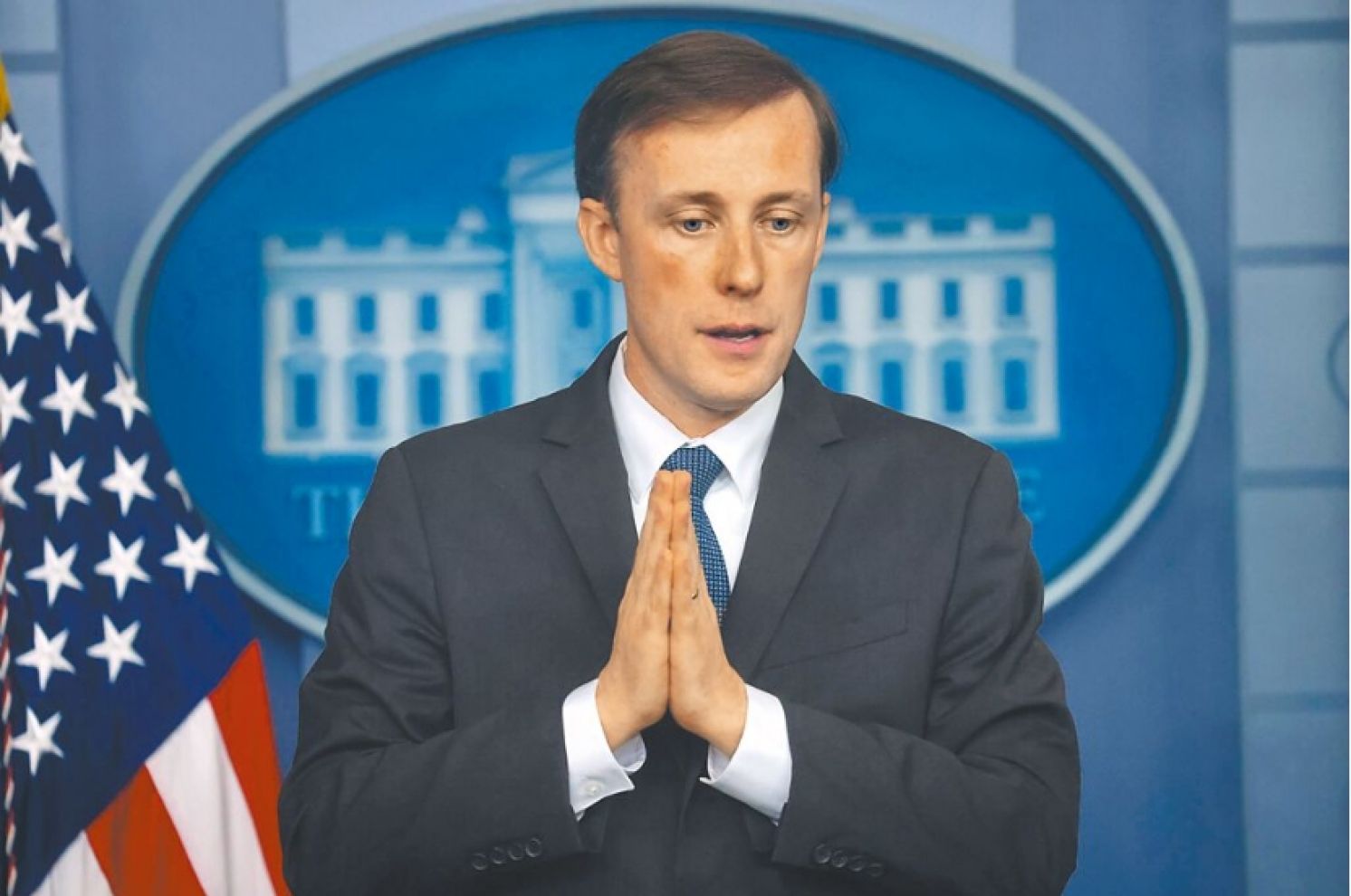
White House:Concern with Some Elements of Taiwan Policy Act
China Times, September 9, 2022
The Foreign Affairs Committee of the United States Senate will consider a draft of the Taiwan Policy Act of 2022 on September 14. White House National Security Advisor Jake Sullivan stated in an interview on September 7 that he would discuss the bill with members of Congress because some of the provisions are worrisome. Sullivan is the first high-ranking official to publicly express concern about the Taiwan Policy Act in the administration of President Joe Biden.
Senator Robert Menendez, who chairs the Senate Foreign Affairs Committee, and Senator Lindsey Graham visited Taiwan in April and introduced the said bipartisan legislation which imposes sanctions on Chinese officials in response to “ significant escalation in hostile action in or against Taiwan”, designates Taiwan as a "major non-NATO ally", requires the Department of State to rename the “Taipei Economic and Cultural Representative Office in the United States” as the "Taiwan Representative Office”, removes restrictions on federal government official interactions with counterparts in Taiwan, rescinds administrative guidance that inhibits Taiwanese officials from displaying symbols of Taiwanese sovereignty, including the flag of the Republic of China, and establishes U.S. policy to promote Taiwan’s inclusion and participation in international organizations, among others.
The Taiwan Policy Act also intends to amend the Taiwan Relations Act, which has been in effect since 1979, by expanding the provision of arms to Taiwan from being in “defensive manner” to “arms conducive to deterring acts of aggression by the People’s Liberation Army.” It also seeks to provide Taiwan with $4.5 billion in military aid and $2 billion in military loans over four years through the Taiwan Security Assistance Initiative, and require the Department of Defense to submit an annual review and evaluation report of the U.S. defense strategy for Taiwan. Menendez described this as the most comprehensive restructuring of U.S. policy toward Taiwan since the Taiwan Relations Act took effect in 1979.
Spokeswoman Joanne Ou of the Ministry of Foreign Affairs (MOFA) stated on September 8 that the U.S. executive and legislative branches have been in contact with Taiwan side during the legislative process. She described the bill as a "flagship bill to support Taiwan," indicating that it incorporates important elements of several bills friendly to Taiwan that have been introduced in the Congress in recent years, demonstrating a high degree of cross-party consensus in the Congress to boost U.S.-Taiwan relations. MOFA expressed its welcome and gratitude, she added.
During a meeting with President Tsai Ing-wen at the Presidential Office Building in April, Senator Graham stated, "We want you to buy the Boeing 787". Nearly four months later, Taiwan’s China Airlines announced on August 30 that it expects to purchase 16 Boeing B787-9 airliners for about $4.5 billion with an option to convert eight to the high-capacity 787-10 model.
The U.S. executive branch has traditionally paid its respect for bills under congressional consideration, while expressing less its executive view. However, Sullivan noted in a television interview on July 7 that he will discuss the bill with Congress and members of Congress, and that although the bill, which can strengthen U.S. security assistance for Taiwan, is quite effective and robust, "there are other elements that gives us some concern.”
Senator Tom Cotton, a member of the Senate Armed Services Committee, called in June for an end to "strategic ambiguity" policy and for the adoption of a "strategic clarity" one toward Taiwan instead. But Sullivan said at the Aspen Security Forum on July 22 that the U.S. "One China” policy has not changed, that ambiguity should be a strategic feature on the Taiwan issue, and that the United States will continue to maintain its "strategic ambiguity" policy.
Former U.S. Deputy Secretary of State Richard Armitage advised the U.S. Congress of thinking twice before some of the provisions of the bill are considered in a bid to avoid adding fuel to the fire of cross-strait relations, and that the United States should focus on practical, rather than symbolic, assistance to Taiwan.
The Group of 20 summit is scheduled to be held in November. In an interview on September 7, Sullivan stated that there is no plan for a meeting between President Joe Biden of the United States and Chinese President Xi Jinping. According to Sullivan, even if there is a face-to-face meeting between the two leaders, he does not expect any major agreement by then.
Update: The Taiwan Policy Act passed the U.S. Senate Foreign Affairs Committee, which voted 17 in favor and 5 against on the afternoon of September 14. The bill will next be reviewed by the Senate. Most changes to the bill were symbolic. For example, the proposal to change the name of Taiwan's representative office to the United States is now described as the "sense of Congress." The provision requiring Congressional confirmation of the director of the American Institute in Taiwan (AIT) was removed. Other substantive content, such as security assistance, international participation, and economic exchanges, passed almost intact.
From: https://www.chinatimes.com/newspapers/20220909000334-260118?chdtv